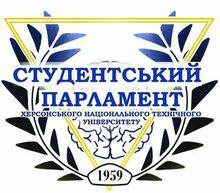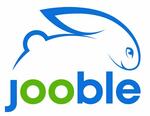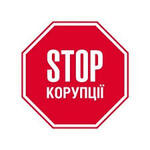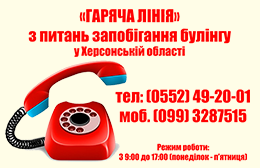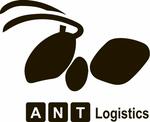|
Структура / Кафедри університету / Програмних засобів і технологій / International Workshop CITRisk / Requirements |
Requirements
Дата 23.02.2022 16:16
Requirements and the acceptance criteria for the CEUR publications:
1. Papers must be strictly related to Computer Science, Information Systems, or Information Technologies fields.
2. Regular papers of 10–20 pages or short papers of 5-9 pages should be prepared in English using CEUR-ART 1-column style for the proceedings. Thus, authors should use Microsoft Word CEUR-ART Template (https://cutt.ly/5x1NUg5) and apply proper template styles to a title, section/subsection headers, figure, and table captions as well as paragraphs, symbols, etc. Example of a paper: http://ceur-ws.org/Vol-XXX/sample-1col.pdf.
3. Papers should be prepared in full compliance with the requirements and submitted in Microsoft Word DOCX format via EasyChair system (https://easychair.org/conferences/?conf=citrisk2023).
4. The title of the paper should not be longer than 10 words excluding prepositions and should correspond exactly to the research results which are discussed in the paper.
5. The authors should be listed below the title of the paper. All authors should be affiliated with relevant institutions, including address, town/city, and country. Each author includes its email and ORCID (https://orcid.org) in the Footer of Page 1 of the paper – see template and example.
6. The text of the papers should generally include the following sections: Abstract; Keywords; Introduction; Related Works; Methodology/Methods/Techniques; Results/Experiment/Discussions; Conclusion; References.
7. The abstract should briefly summarize the contents of the paper of no less than 150 words and no more than 250 words.
8. Introduction and Related Works sections should describe detailly the current state of the problem with the references to appropriate works. The authors are obliged to use the results of international research. All references should be presented in English and must be modern (not older than 5-7 years). At the end of the Related Works section, it is necessary to define the unsolved part of the problem and formulate the aim of the research.
9. The list of references should be properly formatted (see template) and must not be very short or long. The authors should not use a narrow range of authors in references. The number of references to one author should not exceed 3. Self-citation must not exceed 20%. References must include DOIs (Digital Object Identifiers) if exist.
10. It is strongly recommended to divide the original paper into theoretical and practical sections. The theoretical part of the research should be presented in the Methodology/Methods/Techniques section and must describe detailly the methodology, models, methods, and/or techniques used to solve the current problem except to the papers that contain reviews of the current state of the scientific research in the specific field. This section can be divided into subsections with appropriate titles. The confirmation part of the research should be presented in the Results/Experiment/ Discussions section and can be divided into subsections as well. This section should describe the experiment or computer simulation, obtained results, and a detailed discussion of them.
11. The Conclusions section should present the solved problem, the summary of the proposed methodology/methods/models, their novelty/originality, and obtained results. This section must be at least 250 words in length.
12. The quality of all figures should be high enough for good reproduction during CEUR publication.
13. All abbreviations in the text of the paper should be preliminary explained.
14. The size of the letters and numbers in the formulas and the fragments of formulas embedded in the text should be the same.
15. All figures and tables in the paper should have captions formatted properly.
16. The level of English must be high enough. The paper must be proofread.
17. Authors should provide Authors’ Agreement to Publish a Contribution as Open-Access on CEUR-WS.org (see https://cutt.ly/ax10V32 for templates) filled in by hand and scanned.
Ethics and Permissions:
The results of the research presented in the paper must be novel and original.
However, if figures, tables, animations, or text quotations from copyrighted works (including websites) are included in the paper, permission must be obtained from the copyright holder (usually the original publisher) and the author(s) for both the print and the online format.
Avoidance of Plagiarism:
The International Program Committee checks the submitted articles for their originality (i.e, no plagiarism) twice - before the first round of peer-review, and before the second (final) round of peer-review (after the authors make necessary corrections concerning the reviewers’ suggestions.
The papers, which have an originality level below 80 percent, will be unconditionally rejected by the International Program Committee.
Avoidance of Self-Plagiarism:
A certain overlap in scientific content between papers by the same author is standard practice and to be expected. However, transparency must be retained, and appropriate references included. Permission must be obtained from other publishers, where appropriate.
Self-citation must not exceed 20%.
Restriction:
One author (co-author) can submit any number of papers, but only 2 regular papers of them may be accepted.
Peer-Reviewing
The workshop will have a double-blind peer-review process. All submitted papers will be sent to at least two independent reviewers. Additional reviewers will be concerned if necessary.
Reviews should be based on technical quality, relevance, originality, significance, and clarity. If necessary, an additional reviewer will be involved. The International Program Committee will use these reviews to determine, which papers will be accepted for presentation at the workshop.
The result of the review will be announced to the submitting authors by email, along with reviewer comments, if any.
We solicit submission of the original paper, not previously published or submitted for publication elsewhere.
“No-show” papers won’t be included in the Workshop Proceedings. Only the papers presented at the workshop shall be submitted to CEUR-WS.org for online publication.
Participation and publication are free of charge.










